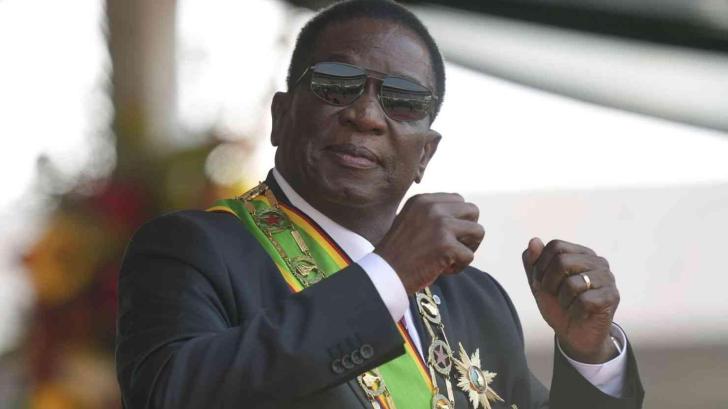News / National
Mnangagwa trying to cling to power post 2030
02 Jul 2024 at 09:11hrs |
0 Views

President Emmerson Mnangagwa's allies and supporters within Zanu-PF are intensifying their bid to extend his rule beyond the 2028 constitutional limit, aiming for a new deadline of 2030. This move is seen as a strategic effort to solidify Mnangagwa's grip on power and ensure the continuity of his policies and leadership style.
The campaign to extend Mnangagwa's rule is gaining momentum, with John Paradza, a prominent leader in the ruling party's Masvingo youth league and the Deputy Minister of Environment, Climate, and Wildlife, playing a pivotal role. Paradza has been at the forefront, leading the chants and rallying support for the extension. His involvement underscores the significant backing Mnangagwa enjoys among the youth within the party, which is crucial for mobilizing grassroots support.
The provinces of Masvingo and Midlands, known as Mnangagwa's power base, are spearheading this campaign. These regions have historically been loyal to Mnangagwa, providing him with a strong foundation of support. The leaders and members of these provinces are actively organizing rallies and events to promote the extension of Mnangagwa's rule, emphasizing the need for stability and continuity in leadership.
However, this push to extend Mnangagwa's tenure is drawing comparisons to the late former president Robert Mugabe. Mugabe's tenure, which lasted 37 years, ended in 2017 when he was removed from power in a coup led by Mnangagwa and his allies. Critics argue that Mnangagwa's attempt to cling to power mirrors Mugabe's reluctance to step down, raising concerns about the potential for another prolonged and contested presidency.
The opposition and civil society groups are voicing strong objections to this bid, arguing that it undermines democratic principles and the constitutional framework. They fear that extending Mnangagwa's rule could lead to further entrenchment of authoritarian practices and hinder progress towards genuine democratic governance in Zimbabwe.
As the campaign progresses, it is likely to face significant resistance from those advocating for adherence to the constitutional limits and a peaceful transfer of power. The outcome of this bid will have far-reaching implications for Zimbabwe's political landscape, potentially shaping the country's future direction and stability.
The campaign to extend Mnangagwa's rule is gaining momentum, with John Paradza, a prominent leader in the ruling party's Masvingo youth league and the Deputy Minister of Environment, Climate, and Wildlife, playing a pivotal role. Paradza has been at the forefront, leading the chants and rallying support for the extension. His involvement underscores the significant backing Mnangagwa enjoys among the youth within the party, which is crucial for mobilizing grassroots support.
Mnangagwa trying to cling to power pic.twitter.com/44aSkVHmTb
— Bulawayo24 News (@Bulawayo24News) July 2, 2024
The provinces of Masvingo and Midlands, known as Mnangagwa's power base, are spearheading this campaign. These regions have historically been loyal to Mnangagwa, providing him with a strong foundation of support. The leaders and members of these provinces are actively organizing rallies and events to promote the extension of Mnangagwa's rule, emphasizing the need for stability and continuity in leadership.
The opposition and civil society groups are voicing strong objections to this bid, arguing that it undermines democratic principles and the constitutional framework. They fear that extending Mnangagwa's rule could lead to further entrenchment of authoritarian practices and hinder progress towards genuine democratic governance in Zimbabwe.
As the campaign progresses, it is likely to face significant resistance from those advocating for adherence to the constitutional limits and a peaceful transfer of power. The outcome of this bid will have far-reaching implications for Zimbabwe's political landscape, potentially shaping the country's future direction and stability.
Source - online
Join the discussion
Loading comments…
































